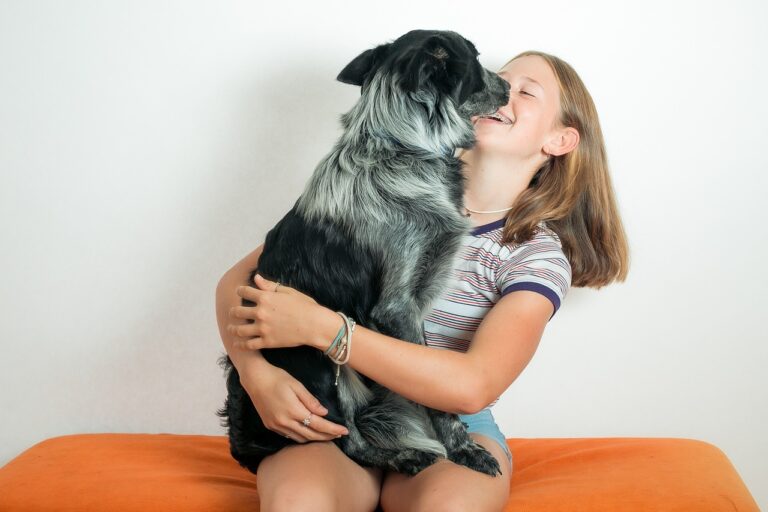
How to Choose the Ideal Pet for Your Family
Having a pet can be one of the most rewarding experiences in life. They provide companionship, unconditional love, and often become essential members of the family. However, before making this decision, it’s important to think about which type of pet will be the best fit for your home and your routine. In this article, we will discuss how to choose the ideal pet for your family, considering factors such as space, available time, and care needs.

Choosing the Ideal Pet: Where to Start?
When you think about adding a pet to your family, it can be difficult to decide which one is best for everyone. There are many options, such as dogs, cats, birds, rabbits, hamsters, and even reptiles. Each type of pet has its own needs, behaviors, and characteristics, so it’s important to evaluate a few aspects before making a decision.
What Does Your Family Need?
First of all, ask yourself: “How can a pet fit into my routine?” If you have young children at home, for example, you may need a pet that is more patient and calm. If your family has a more hectic lifestyle, perhaps a pet that requires less daily care, such as a fish or a hamster, might be a better option.
A dog, for example, requires much more time and dedication. They need daily walks, socialization, and constant attention. On the other hand, a cat, although also needing affection and care, is generally more independent and can be left alone for longer periods. Knowing what your family needs will help define which pet will be the best fit for you.
Available Space
Another important factor is the space available in your home. If you live in a small apartment, it may be more difficult to have a large dog or an animal that needs a lot of physical activity. A smaller pet, such as a rabbit or a fish, might be a more practical solution. If your home has a large yard, a dog that loves to run and play might be an excellent choice.
Time to Care
It’s essential to consider how much time you have to dedicate to your pet. Animals like dogs and cats require daily care, such as feeding, cleaning, walks, and interaction. If you have a busy schedule or travel frequently, perhaps a more independent pet, like a fish or a reptile, will be easier to manage.
Age of Children
If you have children, choosing the right pet for your family should also take into account the age of the children. Some animals, like dogs and cats, can be great companions for children, offering them an opportunity to learn responsibility. However, it’s important to choose a pet that has the right temperament for living with children, especially in households with babies or small kids.
Pet Temperament
Each species has its own temperament, and even within the same species, animals can vary greatly. For example, within dog breeds, some are more active and require more exercise, while others are calmer and adapt better to indoor life. When choosing the ideal pet for your family, it’s important to understand the characteristics of each type of animal. Dogs, for example, can be very loyal but may also be energetic or territorial, depending on the breed.
Types of Pets
Now that we’ve discussed the factors that influence the choice of the ideal pet, let’s take a look at some popular options and what they require in terms of care.
Dogs: Loyal Companions Full of Energy
Dogs are known for their loyalty and unconditional love. They can be great for families, especially those with the time and energy to take daily walks and play with them. However, they also require a lot of attention. Before choosing a dog, consider the breed’s size, energy level, and care requirements.
Small dog breeds are good for apartments and families with little space. Examples include the Poodle, Chihuahua, and Bichon Frisé.
Large breeds require more space and frequent exercise. Examples include the Labrador, Golden Retriever, and German Shepherd.
Cats: Independent Yet Affectionate
Cats are known for being more independent compared to dogs, which makes them a good option for families with tighter schedules. They don’t need walks, but they still love affection and attention. Cats can adapt well to both large homes and apartments, as long as they have a comfortable space to rest and play.
Birds: Small, Colorful, and Charming
If you have limited space or are looking for a visually interesting pet, birds can be a great option. They are usually small and need a suitable cage. Although they require regular care, such as cage cleaning and feeding, birds like budgies and canaries are easy to care for and may even learn to interact with people.
Small Mammals: Hamsters, Rabbits, and Gerbils
If you want a smaller, interactive pet, a hamster, rabbit, or gerbil may be ideal. These animals are great for children, as they can be handled with care and are relatively easy to take care of. However, remember that they also require daily care and a clean living environment.
Fish: Beauty and Tradition
Fish are relaxing and beautiful pets, making them an excellent choice for those who don’t have much time or space. Aquariums require regular maintenance, such as water changes and feeding, but fish are independent and require less daily attention. They’re great for families who want a touch of nature without the responsibility of a pet that needs constant interaction.
Reptiles: Calm and Fascinating
For those who enjoy something a little different, reptiles such as turtles, iguanas, or snakes can be an excellent choice. They usually require specific care, such as temperature control and specialized feeding, but are ideal for those with limited space who want a pet that doesn’t need much physical contact.
How to Know if You’re Ready for a Pet?
Choosing the ideal pet is not just about finding the right type of animal but also about evaluating if you’re ready for the responsibilities that come with it. Here are a few questions to help you make that decision:
Do you have enough time? If you don’t have time to give daily attention, it might be better to opt for a more independent pet.
Do you have patience? Taking care of a pet can be demanding, especially at first.
Are you willing to invest? Pets can be expensive, not just to purchase but also for food, health care, and general maintenance.
Are you prepared for the unexpected? Pets can get sick, which may lead to unforeseen costs.
Conclusion
Choosing the ideal pet for your family is not a simple decision, but with the right information, you can make a choice that will be good for everyone involved. Remember to consider the available space, the time you can dedicate, and the temperament of the pet. And above all, think about your family’s needs and how a pet can contribute to everyone’s happiness and well-being.
If you choose wisely and responsibly, your new four-legged (or feathered, scaly, or shelled!) friend will surely become a beloved and important part of your life.
Key Takeaways
Choose a pet based on your family’s needs, available space, and time.
Consider the pet’s temperament and how it will adapt to your lifestyle.
Pets require regular care, whether it’s a dog, a cat, a fish, or another animal.
Be prepared for the costs and commitments that come with owning a pet.






